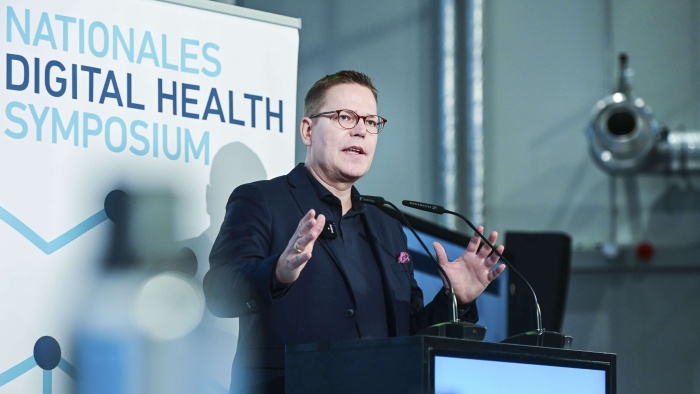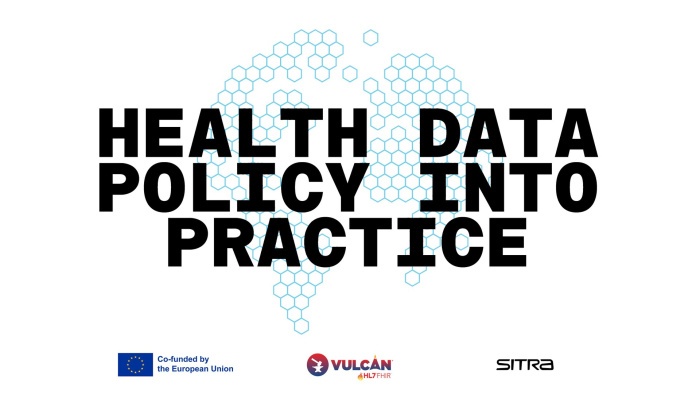National Digital Health Symposium 2024: AI Transforms the Healthcare Sector

Matthias Mieves, Member of the Bundestag. © TMF
The 6th National Digital Health Symposium, held on December 6, 2024, brought together leading figures from politics, healthcare, and research in Berlin to discuss the potential of Artificial Intelligence (AI) in healthcare and medical research. AI is set to fundamentally transform healthcare research and patient care. It enables not only the analysis of individual health data in entirely new ways, making medical care more precise and personalized, but also identifies previously unseen patterns in large-scale population data. This paves the way for data-driven innovations.
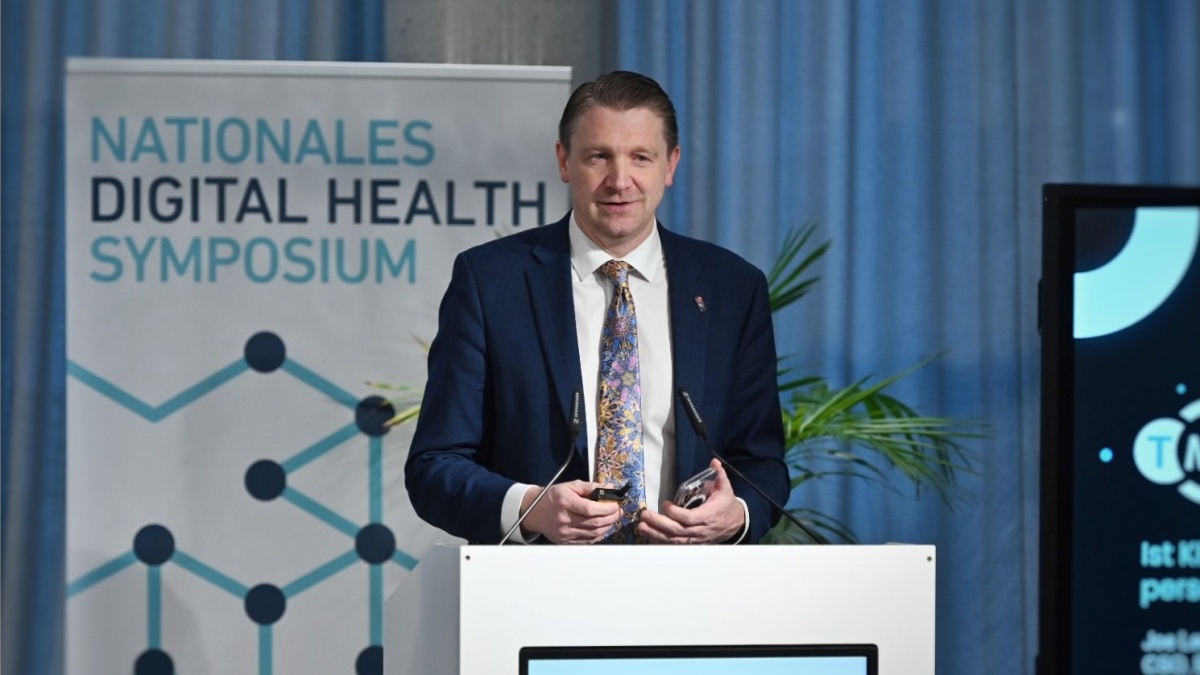
Prof Dr Joe Lennerz, BostonGene. © TMF
"AI technologies are about to bring a revolutionary paradigm shift to the healthcare sector, driven by the growing interest of tech giants," emphasized Prof. Dr. Joe Lennerz from BostonGene in his keynote. The regulation of AI will significantly influence its success. "What is needed is not overregulation, but a locally feasible implementation that can be safely implemented."
AI as a Game-Changer for Healthcare Research and Data Use
AI is fundamentally changing healthcare research and the handling of medical data. By analyzing large and complex datasets, AI opens new ways to make medical care and research more individualized and precise. "Data is the engine of future AI development and health data research," said Prof. Dr. Rainer Röhrig, chairman of the TMF, during the opening of the symposium. "High-quality, interoperable data is needed to unlock AI’s potential," Röhrig added.
AI not only enables in-depth analysis of individual health data but also uncovers new insights at the population level that were previously inaccessible. AI is the key to conducting effective research and clinical work in the face of constantly growing data and increasing complexity. "To harness AI’s potential, we need to explore existing data repositories such as Real World Data, ePA data, or data from registries," said Sebastian C. Semler, Managing Director of the TMF. "Furthermore, the legal framework for data access must be consistently further developed."
AI also has the potential to analyze individual health data in entirely new ways, improving direct medical care and treatment for patients. "Data-driven health research will become increasingly important in the coming years, and AI helps by reducing complexity to focus on the essential research questions," explained Andreas Klein, Ministerial Counselor at the Federal Ministry of Education and Research (BMBF).
In addition, AI makes medicine more human again, as it can assist with administrative tasks and create more time for medical treatment, according to Prof. Dr. Felix Nensa from the University of Duisburg-Essen.
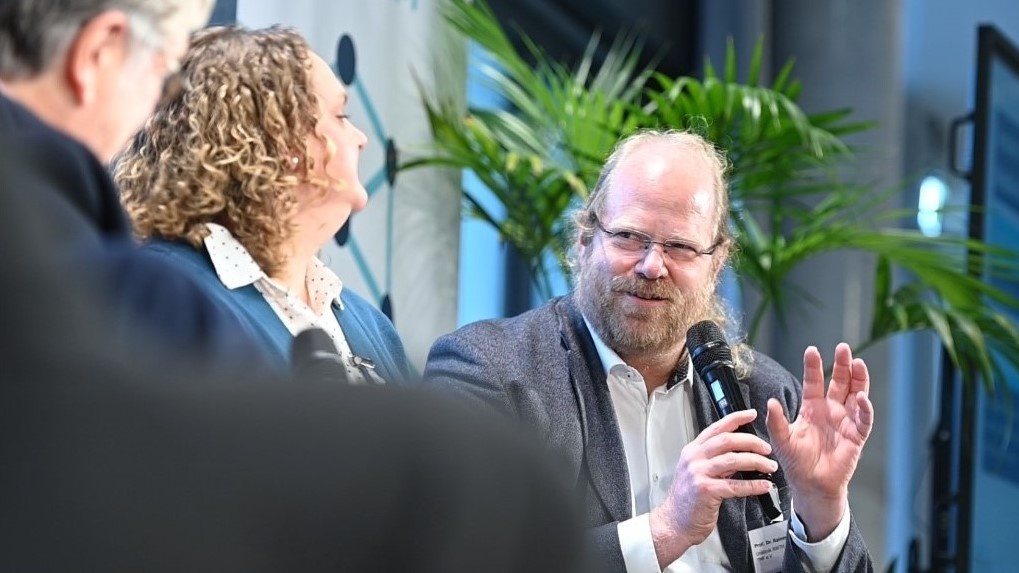
Prof Dr Rainer Röhrig, Chairman of the TMF Board. © TMF
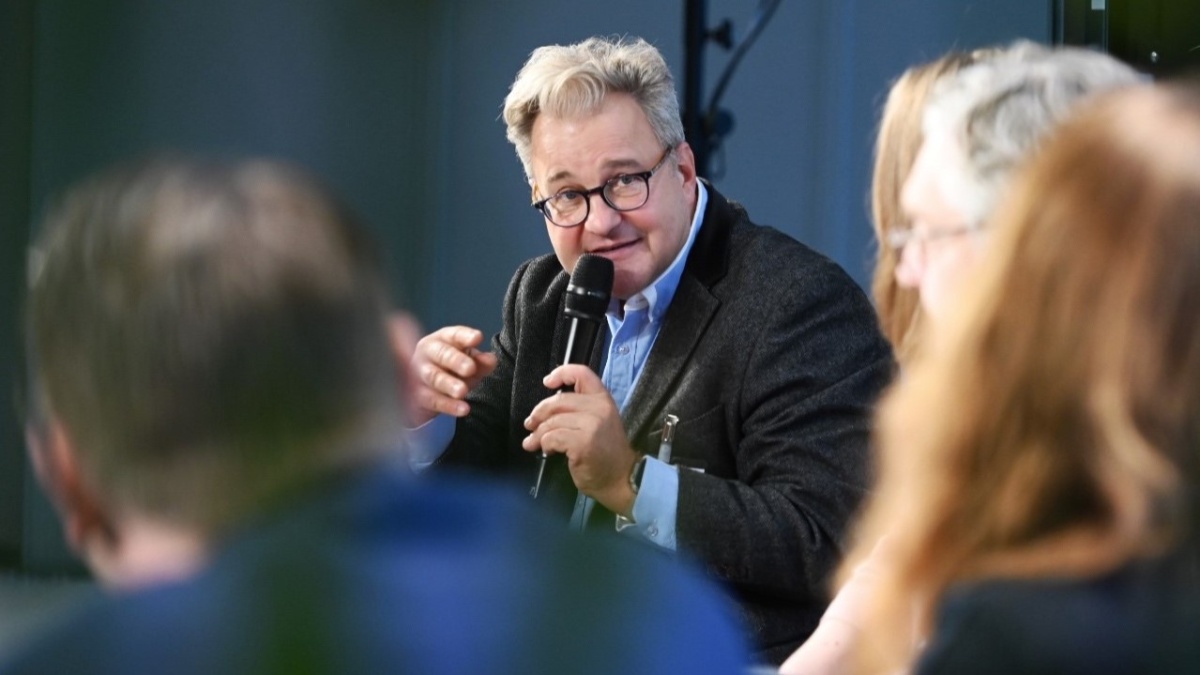
Sebastian C. Semler, Managing Director of the TMF. © TMF
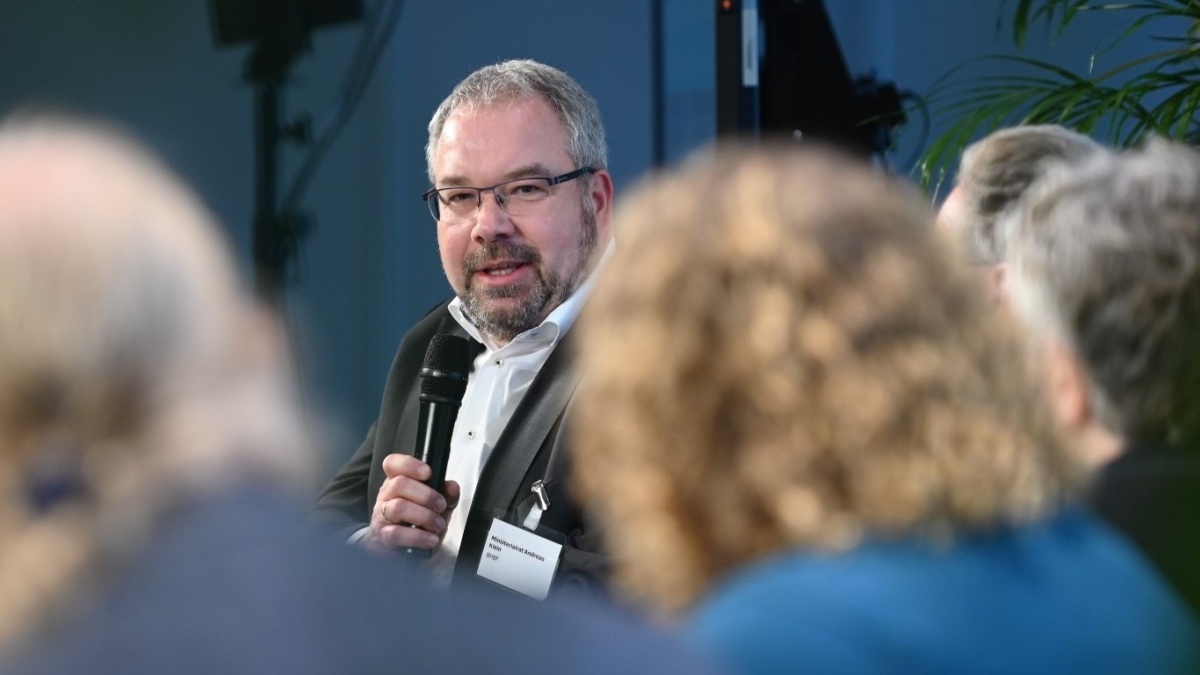
Ministerial Counselor Andreas Klein, Federal Ministry of Education and Research (BMBF). © TMF

Prof Dr Felix Nensa, University of Duisburg-Essen. © TMF
Data is the driving force behind the future development of AI and health data research.
How Regulation and Data Protection Become Incubators for AI and Innovation

Dr Anna Christmann, Member of the Bundestag (Alliance 90/The Greens). © TMF
The experts at the National Digital Health Symposium are convinced that the current regulatory frameworks are key to future AI innovations. "The AI Regulation (AI-VO) and the European Health Data Space (EHDS) offer the potential to enable the secure exchange, use, and reuse of health data across the EU for the benefit of patients, researchers, innovators, and regulators," emphasized Dr. Anna Christmann, Member of the Bundestag (Alliance 90/The Greens). "The AI Regulation is an opportunity for the AI hub of Europe, not least because of its harmonized rules that strengthen the internal market. For this, it must be implemented in a legally secure, bureaucracy-reducing, and innovation-friendly manner," Christmann is confident.
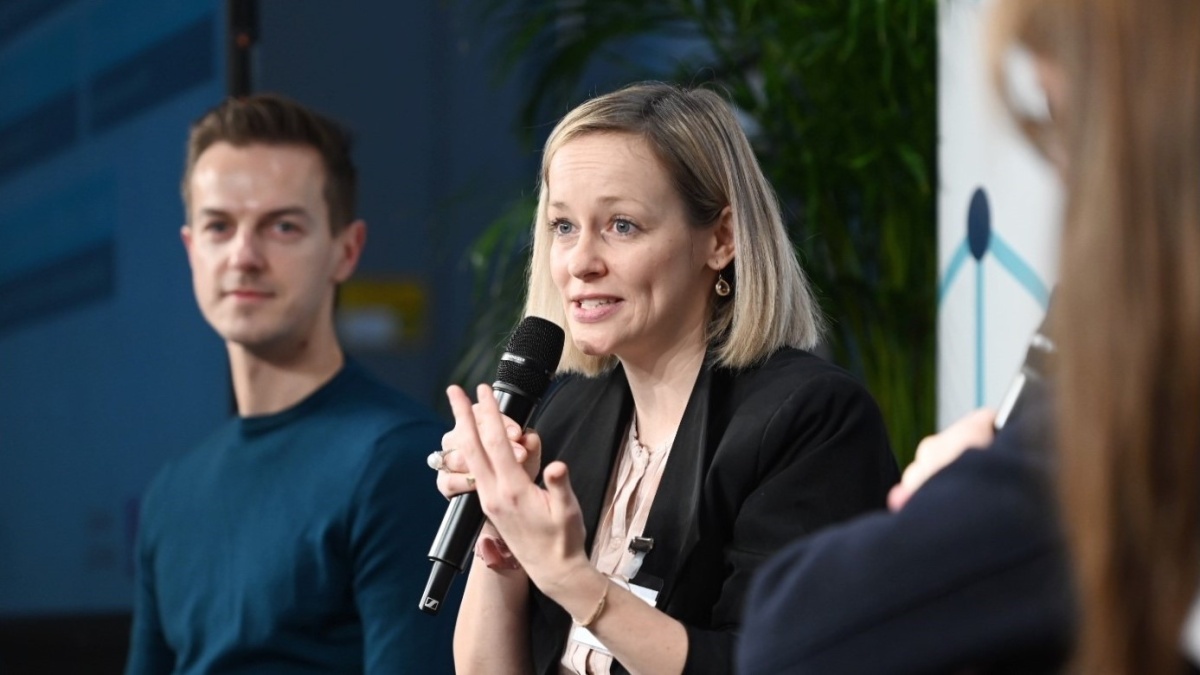
Prof Dr Louisa Specht-Riemenschneider, Federal Commissioner for Data Protection and Freedom of Information. © TMF
"Politics should offer more support to companies and researchers in implementing legal requirements," urged Prof. Dr. Louisa Specht-Riemenschneider, the Federal Commissioner for Data Protection and Freedom of Information, at the symposium. She noted that new laws often do not align with existing legal frameworks. "In general, regulatory uncertainties in Germany, such as those arising from the EU AI Regulation, need to be eliminated. Additionally, more risk-taking and greater competition for the best AI tools should be encouraged," stated Prof. Dr. Ariel Dora Stern from the Hasso Plattner Institute (HPI).
Matthias Mieves, a member of the Bundestag, called for action to be taken with the laws that the government has put in place. "The Health Data Usage Act must be utilized to make progress. We have made many steps forward, and now we must implement it at the local level."

Prof Dr Ariel Dora Stern, Hasso Plattner Institute (HPI). © TMF
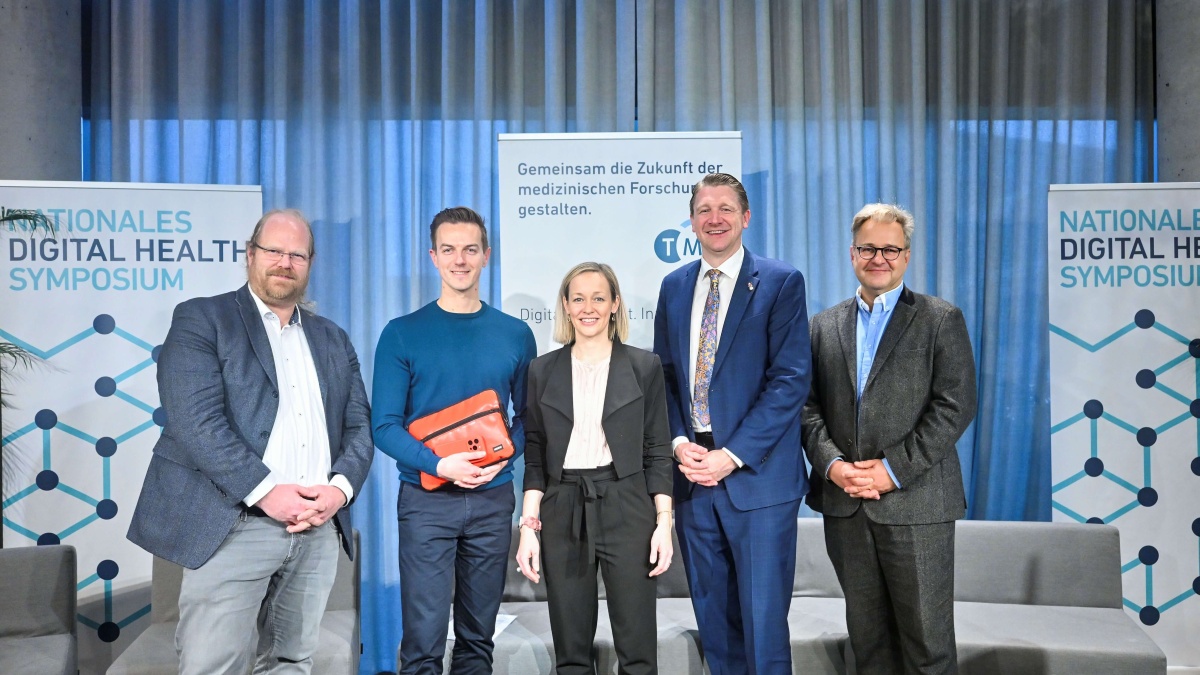
From left to right: Prof. Dr. Rainer Röhrig, Matthias Mieves, Prof. Dr. Louisa Specht-Riemenschneider, Prof. Dr. Joe Lennerz, and Sebastian C. Semler. © TMF
Press Contact
Wiebke Lesch
Phone: +49 30 2200 24731
Mobile: +49 177 2663257
Email: presse@tmf-ev.de
X: @tmf_eV
National Digital Health Symposium
The National Digital Health Symposium serves as a networking and exchange forum for service providers, payers, and medical research, incorporating the perspectives of manufacturers and patients. The goal is to accelerate the digital cultural shift. It focuses on realistically addressing challenges, tackling them constructively, and collaboratively shaping the healthcare system of the future. Since 2019, the TMF has been organizing the National Digital Health Symposium. This year, it was held in cooperation with the National Association of Statutory Health Insurance Physicians (KBV) with financial support from Johnson & Johnson.
Further Information
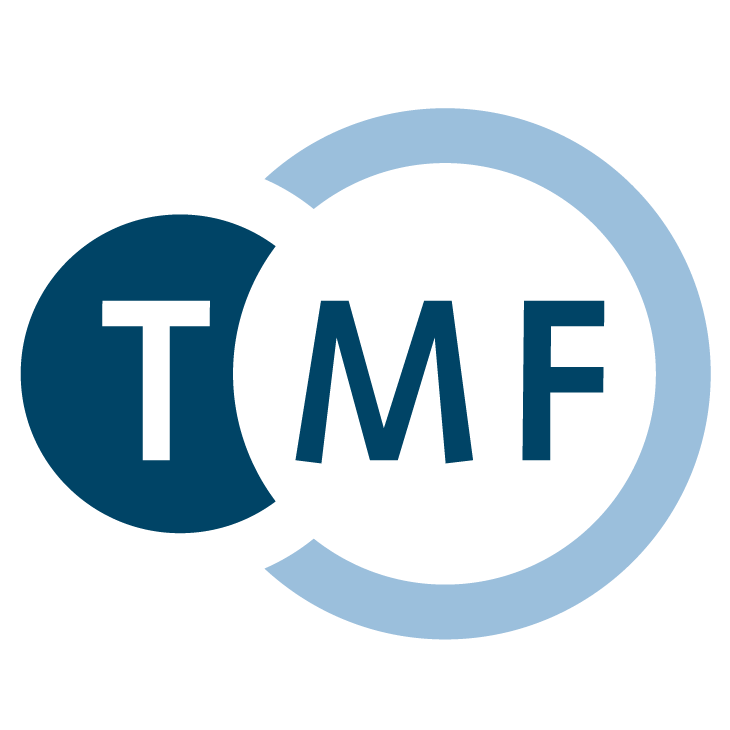
About the TMF e.V.
The TMF is the umbrella organization for networked medical research in Germany. It is the platform for interdisciplinary exchange as well as cross-project and cross-location cooperation in order to identify and solve the organizational, legal/ethical and technological problems of modern medical research. Solutions range from expert opinions, generic concepts, and IT applications to checklists, practical guides, training, and consultation services. The TMF makes these solutions available to the public free of charge.

